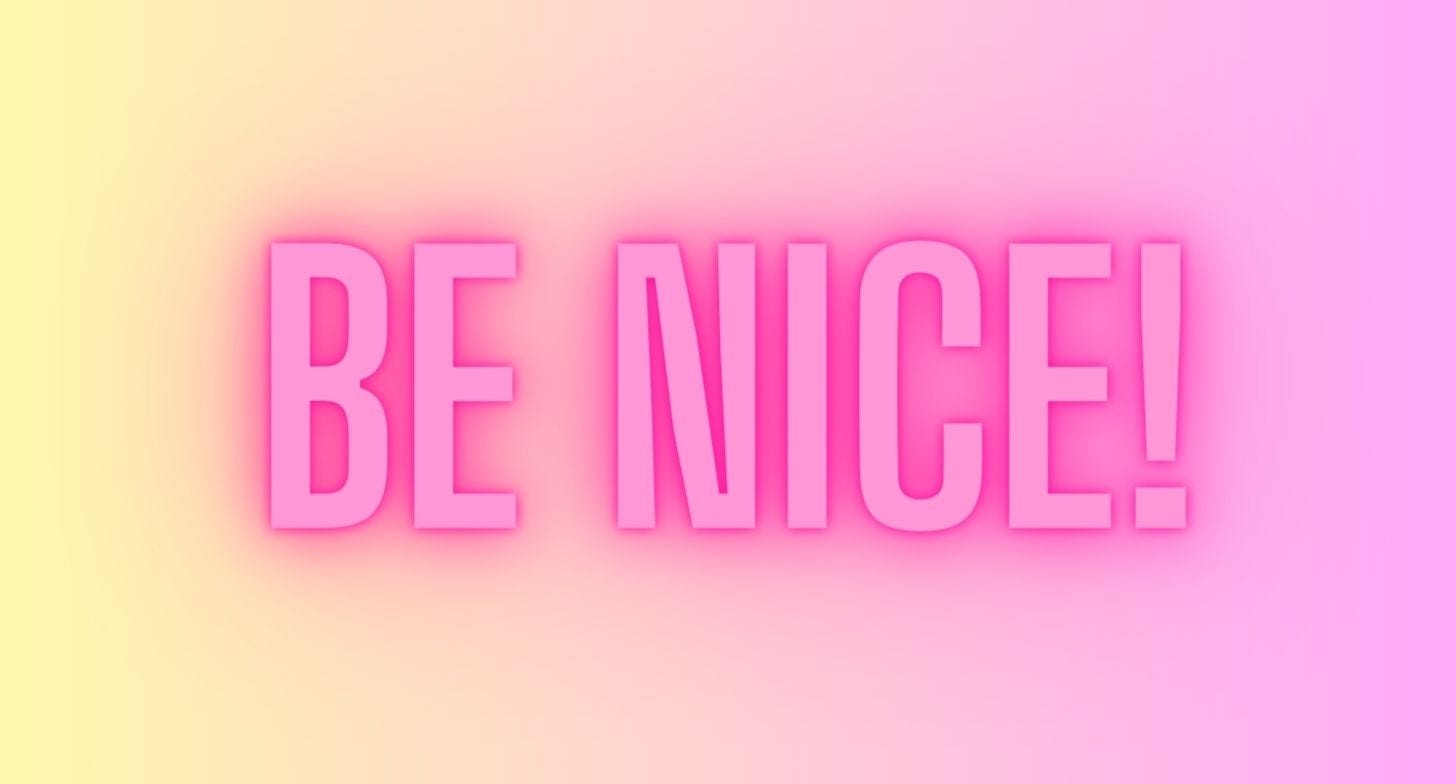The problem with being 'nice'
And why the word itself is a fraud!
I once had an online interview with a publisher who was interested in buying some of my work. The interview went really well, until the end, when the publisher told me that the purpose of our chat was essentially to check that I was a nice person, without too much of an ego, so they’d feel comfortable working with me. To begin with, I understood what th…


